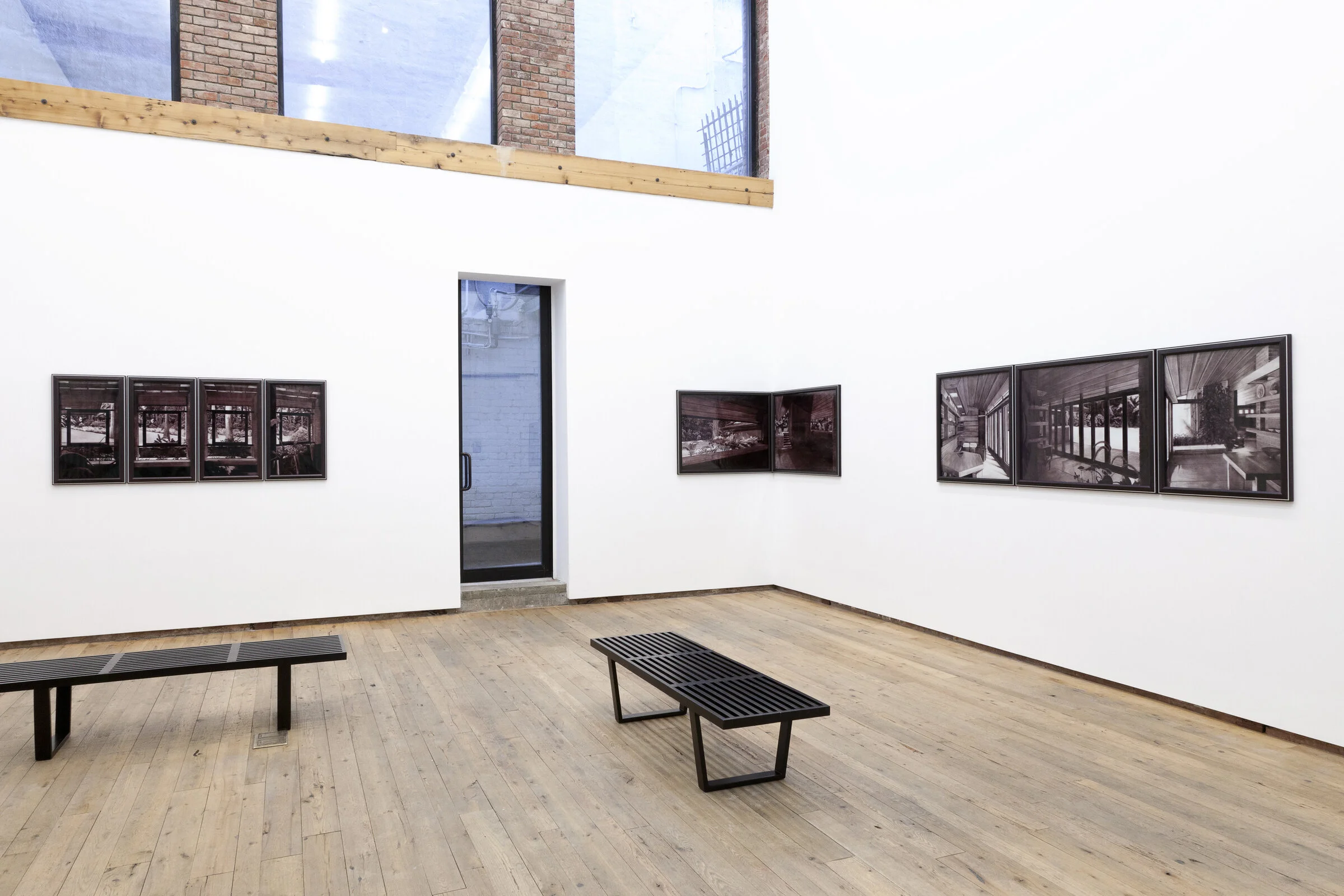
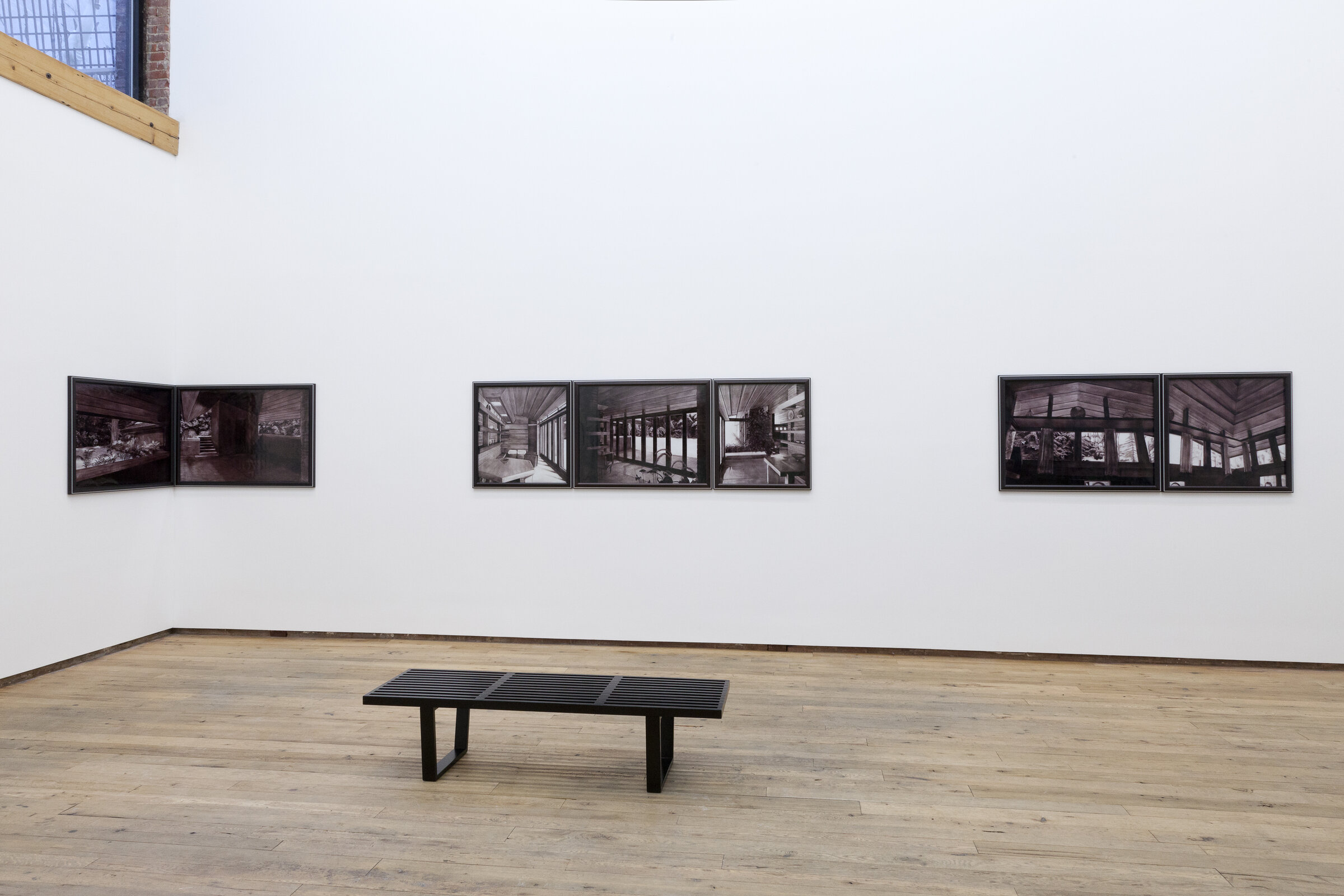
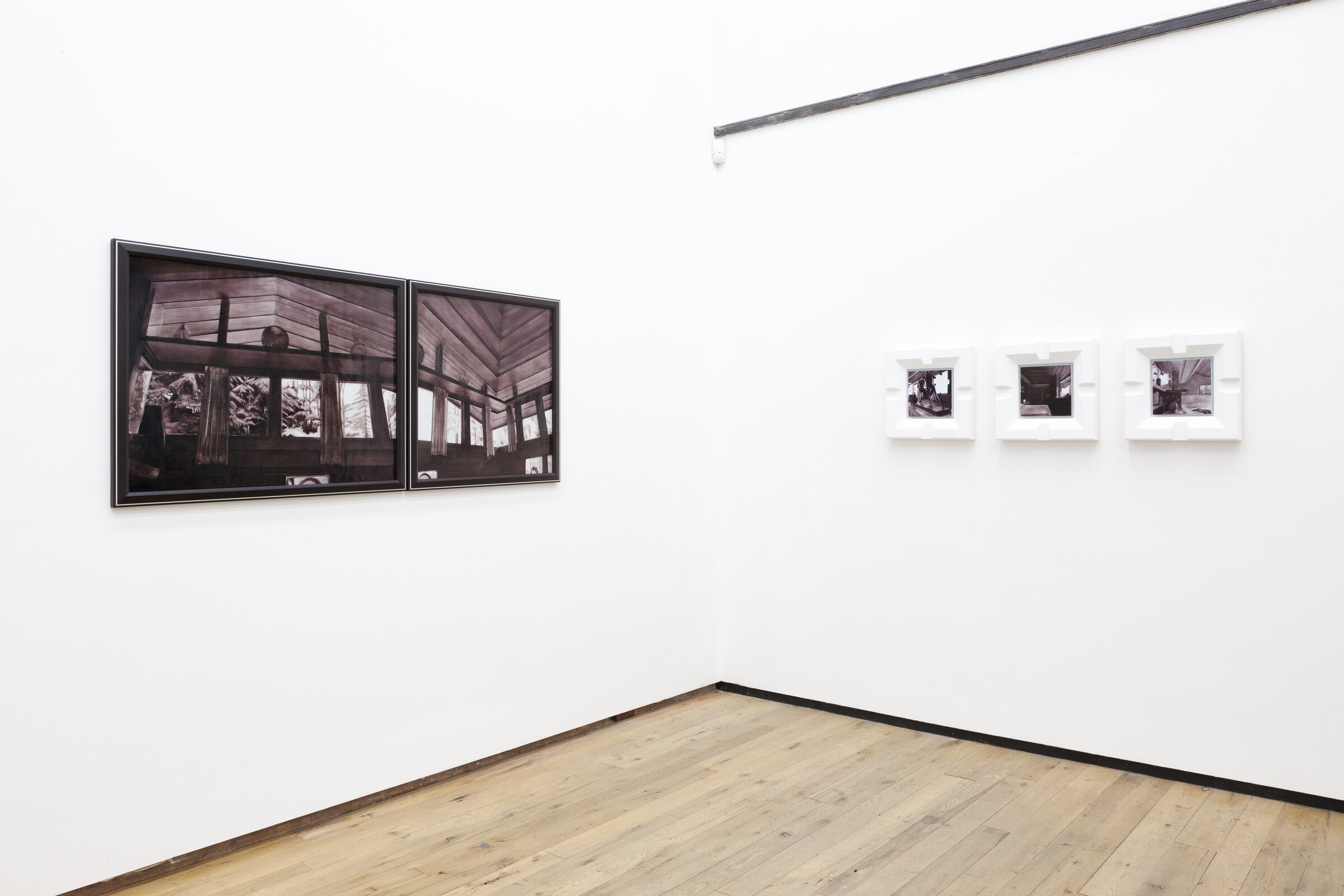
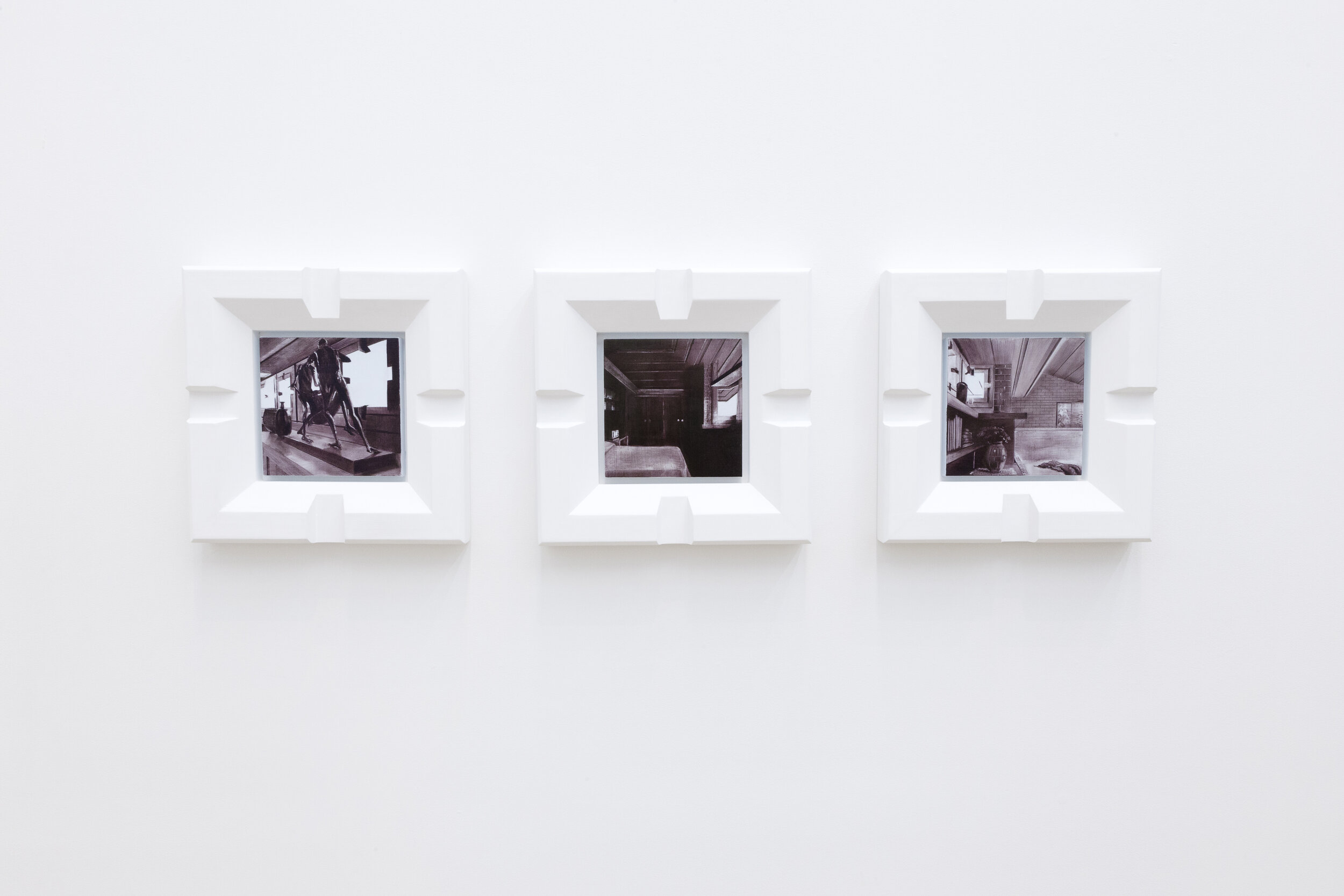
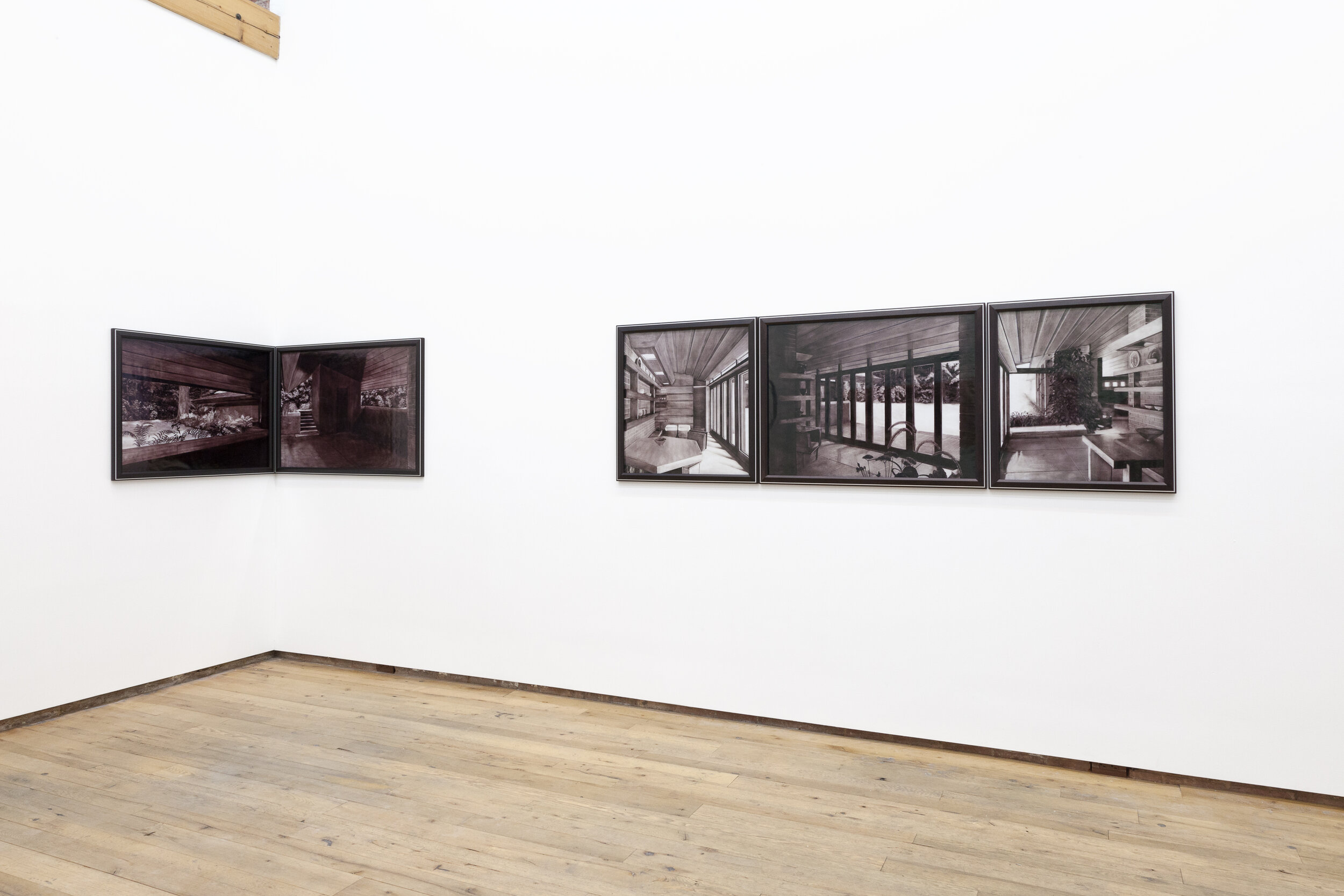
Homatorium I
For Homatorium I, Chamberlain creates an environment in the inner gallery resembling the feeling of Frank Lloyd Wright’s Zimmerman House; marking a shift for Chamberlain, as she focuses for the first time on a singular site. Through a residency at the Currier Museum of Art in 2012, she witnessed the influence of modernist sanatoriums in Wrights’ interior and exterior design. Chamberlain experienced the house as, “a sanitized version of reality,” a combination of both home and sanatorium.Often working from vintage photographs of the period, Chamberlain heightens her presence in Homatorium I by combining the photos of Yukio Futagawa and the Zimmermans’ with her own, captured on her visit to the Zimmerman House. Creating multi-panel pieces of different images of the same spaces, she offers a collective, and therefore unfixed perspective and memory of the site.
Chamberlain further fragments views by splicing and editing the original source material. Unlike her previous bodies of work, the images chosen all depict windows and views looking from the interior; Chamberlain positions the viewer inside the Zimmerman house but directs the gaze outward. Regimenting the height of each piece in the inner gallery to 27 inches and composing all the paintings in a deep red harkening the warm brick and wood of the Zimmerman house, Chamberlain fabricates a complete environment for her viewer. Using hand-crafted frames, some that mirror actual windows in the Zimmerman house (fabricated by Peter Chamberlain) and others that reference the aluminum of modernist sanatoriums, Chamberlain frames an already framed view, heightening a sense of displacement. The panels appear cinematic lining the walls of the gallery each scene abutting the next, presenting the viewer with an edited and fragmented perspective.
(Courtesy DODGEgallery)
Framing and production costs for Homatorium I made possible by a 2012 NYFA in painting and Proximo Spirits & Jose Cuervo 1800
Dining Logia Arrangement Screen, Zimmerman House, Wright, 1950
Lithography ink on vintage tracing cloth
30 x 93.5 inches framed
Clear Corners Arrangement Screen, Zimmerman House, Wright, 1950
Lithography ink on vintage tracing cloth
30 x 97 inches framed
Pillow View Arrangement Screen, Zimmerman House, Wright, 1950
Lithography ink on vintage tracing cloth
30 x 69 inches framed
Squared Views Arrangement Screen, Zimmerman House, Wright, 1950
Lithography ink on vintage tracing cloth
30 x 60 inches framed
Sturges' Porch Arrangement Screen, Wright, 1939
Lithography ink on vintage tracing cloth
30 x 84 inches framed
Her View Arrangement Screen, Zimmerman House, Wright, 1950
Lithography ink on vintage tracing cloth
30 x 78 inches framed
Cast Window Views: Guest Bedroom Arrangement, Zimmerman House, Wright, 1950
Lithography ink on muslin wrapped board
15 x 15 x 2.5 inches
Cast Window Views: Sculpture Arrangement, Zimmerman House, Wright, 1950
Lithography ink on muslin wrapped board
15 x 15 x 2.5 inches
Cast Window Views: Master Bedroom Arrangement, Zimmerman House, Wright, 1950
Lithography ink on muslin wrapped board
15 x 15 x 2.5 inches